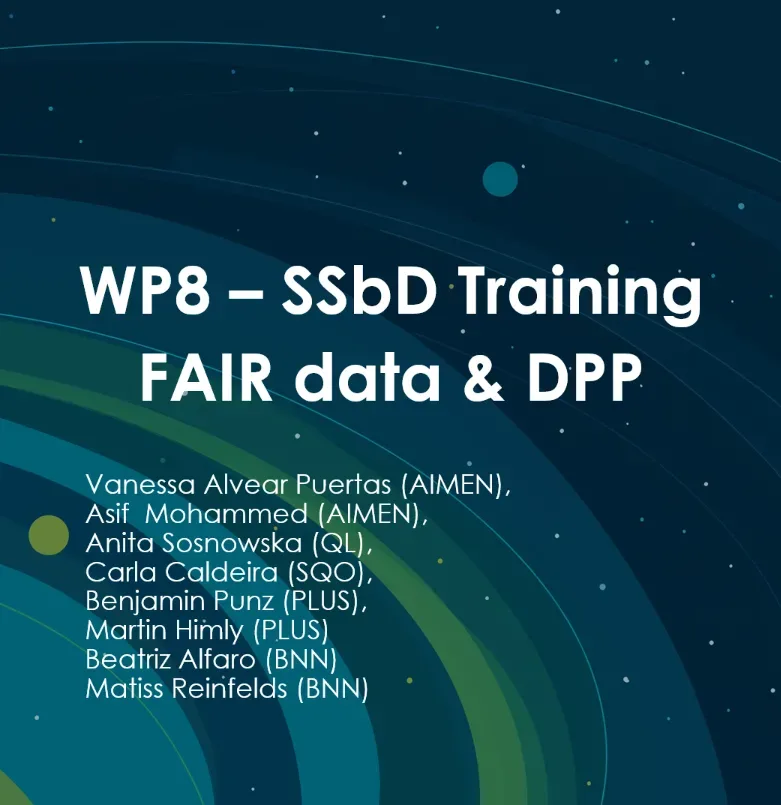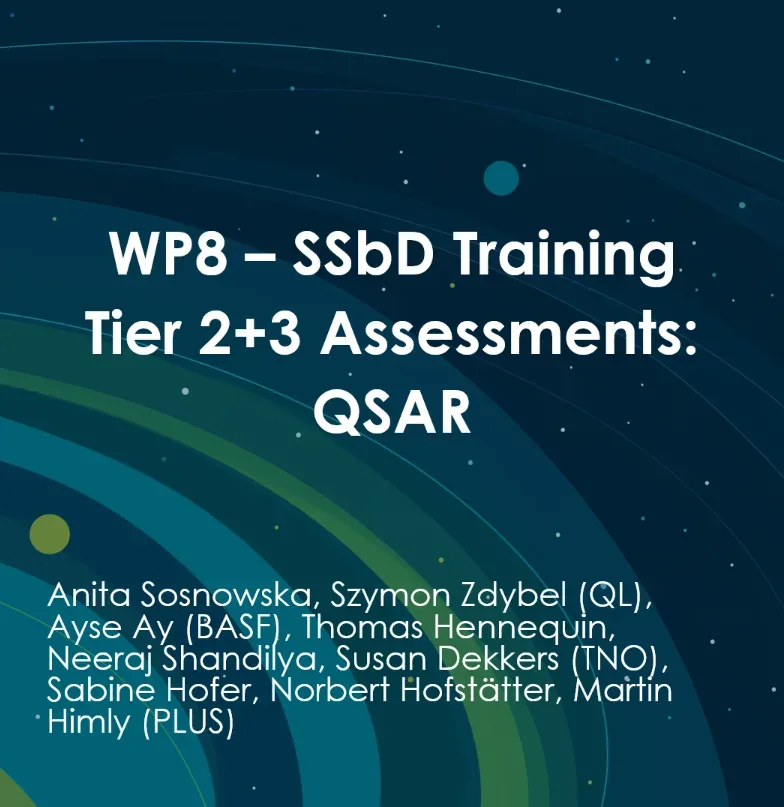PLANETS 4th SSbD Training on FAIR data & models and DPP (19.05.2025, online)
On 19 May 2025, PLANETS consortium organised an internal training on (1) FAR data & models, and (2) Digital Product Passport (DPP).
Aim and key topics of the training
FAIR data and models: The workshop provided a comprehensive overview of the FAIR data principles—Findable, Accessible, Interoperable, and Reusable—and their application in research data management. It aimed to raise awareness, provide assessment tools, and offer practical guidance for enhancing data FAIRness in research workflows.
- Introduction to FAIR Principles: Participants were introduced to the concept of FAIR, including what the acronym stands for and why these principles are important in data sharing and reuse. The distinction between FAIR data and Open Data was also clarified.
- Assessing FAIRness, exploring common challenges associated with non-FAIR data and introduced tools such as FAIR-Aware and the FAIR Evaluation Services to help participants assess the FAIRness of their own datasets. Real-life examples from other projects (FIPs – FAIR Implementation Profiles) were used to illustrate how organizations are implementing FAIR principles in practice.
- FAIR in Practice, with practical implementation strategies, covering essential elements such as metadata standards, persistent identifiers, licensing and access considerations, controlled vocabularies, trusted data repositories, and approaches to improving metadata quality.
- Internal discussion on FAIR Data and the PLANETS Project, which included a proposed data workflow tailored for the PLANETS project.
Digital Product Passport (DPP): This workshop gave an overview of the DPP concept, its relevance in supporting sustainable and circular product systems, gave policy context, and practical implications for stakeholders across the product lifecycle, preparing participants to understand and deal with upcoming regulatory and data management requirements. Key topics covered:
- Introduction to DPP, with a definition of the Digital Product Passport, and explanation of its role in enabling better product information exchange to support sustainability, compliance, and circular economy goals, including historical and policy background of the DPP and major milestones in its development. The discussion highlighted how the DPP emerged from broader EU policy efforts.
- Policy Context: DPP within the framework of key European Union initiatives EU Green Deal (aiming for climate neutrality), CEAP (Circular Economy Action Plan, promoting sustainable product lifecycles), and ESPR (Ecodesign for Sustainable Products Regulation, which provides the legal basis for DPP implementation).
- DPP Objectives (transparency, circularity, and traceability) and identified key stakeholders involved, including manufacturers, regulators, consumers, recyclers, and others throughout the product value chain.
- Product groups covered by DPP as well as prioritization criteria.
- Data requirements for DPP (such as material composition, carbon footprint, and regulatory compliance information) as well as challenges in data collection and management.
- Practical examples of DPPs in use or in development, to help participants visualize how these passports might be applied in different sectors.
Highlights of the workshop
The session was moderated by Martin Himly (PLUS), who leads the training work package within PLANETS. He introduced the session, outlining the objectives and structure of the training.
Vanessa Alvear (AIMEN) lead the FAIR data training, supported by Benjamin Punz (PLUS). Anita Sosnowska (QSAR Lab) explained the role of QSAR in respect to FAIR and Carla Caldeira (SYENSQO) commented on data sharing versus confidentiality. The DPP training started with an interactive questionnaire (prepared by Beatriz Alfaro and Matiss Reinfelds (BNN) to get the first impressions from the participants about their concerns, potentials and limitations of DPP. The DPP training was led by Asif Mohammen (AIMEN).
Training Materials
Building on the insights from this internal training, PLANETS has developed external training materials as an introduction to FAIR data & models and Digital Product Passport (DPP). These materials include:
- Presentation slides of the FAIR data & models training
- Presentation slides of the DPP training
- Recording of the FAIR data & models training [YouTube video]
- Recording of the DPP training [YouTube video]
All training materials are available in the PLANETS community on Zenodo under the Creative Commons Attribution 4.0 International licence, allowing for redistribution and reuse with proper credit to the creators. You can access them here.
Additionally, all recorded sessions can be viewed on the PLANETS YouTube channel.






